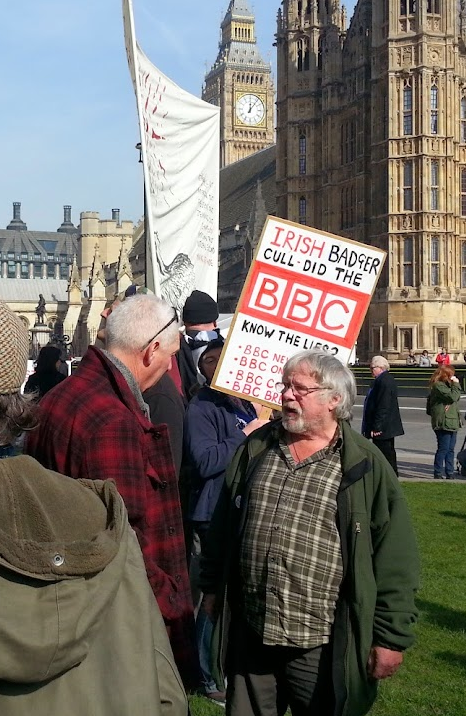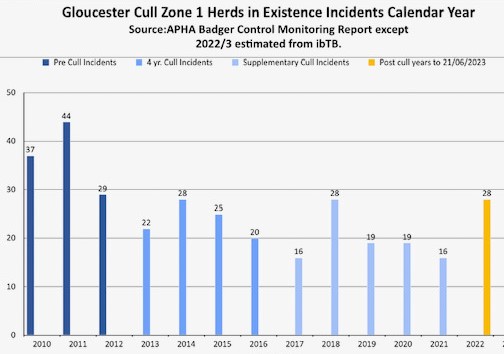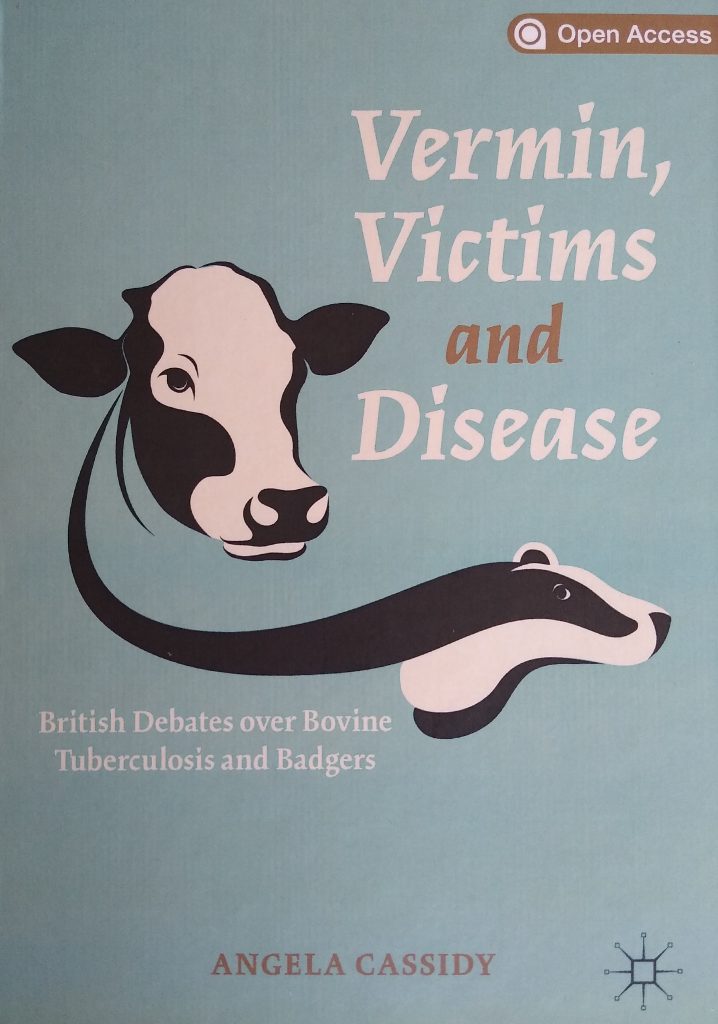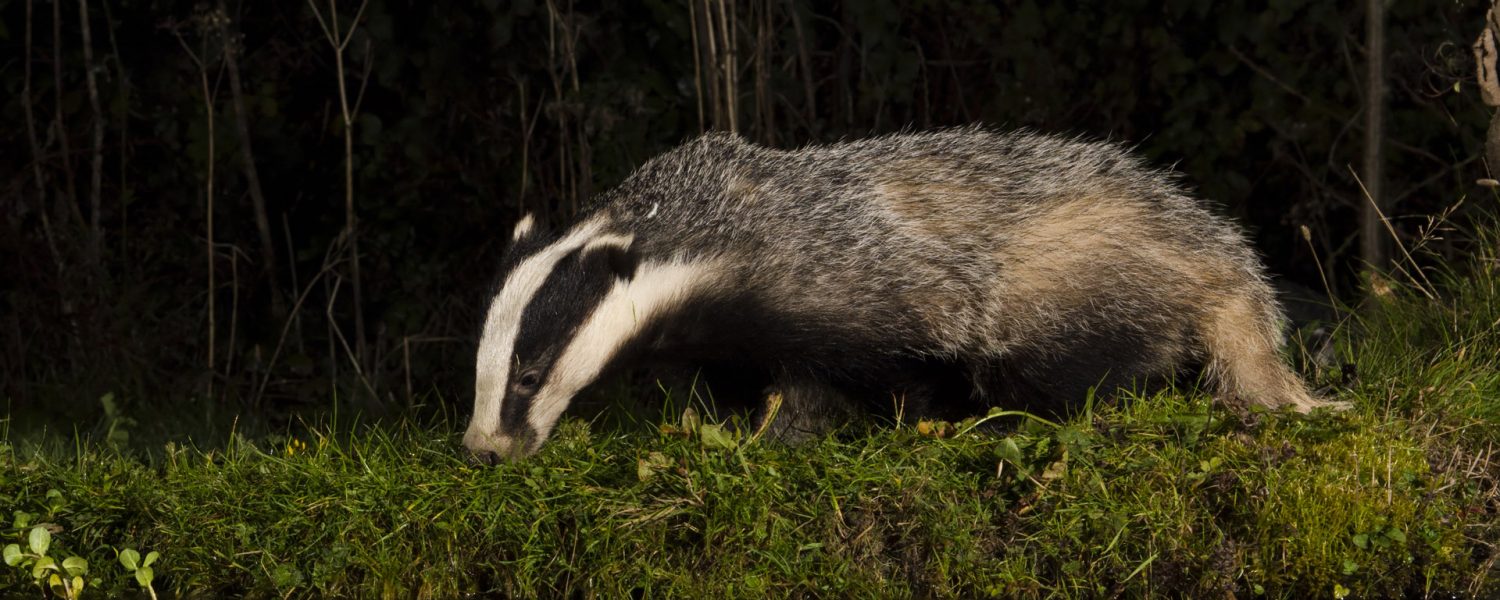A quick look at the BBC farming media and sociology, touching on ‘tribalism’, the BTB Partnership and ‘avoiding the facts’. The result: a perfect storm to confuse bovine tuberculosis control.

In 2022 DEFRA took steps, but failed, to try to stop published peer-reviewed science being published in the Veterinary Record (here, here, here and here), disgracefully interfering in the scientific process. Fourteen months later, DEFRA are still unable to produce data or analyses to substantiate their claim that badger culling has resulted in any disease benefit, or indeed has not failed completely. The Minister Therese Coffey now talks about badger culling continuing ‘if the science is good‘ (see here). Last year, the Chief Veterinary Officer Christine Middlemiss on Radio 4s Farming Today, blamed others in DEFRA for the withholding of data on badger culling (listen here). If such data were released, it would quickly allow the use of a wide variety of analyses to check for the efficacy of badger culling. Surely the BBC’s influential Radio 4 flagship farming programme Farming Today, with its one million listeners, would wish to be first to get to the bottom of what is really happening in the badger cull, which is after all, such an important subject. But recent events suggest that they are perhaps, more than hesitant, and might even prefer confusion over clarity?
This month, following enquiries to Farming Today about a misleading story on badger culling by David Gregory Kumar (a BBC reporter from the West Midlands), a follow-up piece was promised by the BBC’s Dimitri Houtart, their ‘Environment, Food, Rural Affairs & Natural History Executive Editor & BBC Rural Affairs Champion’. He said: ‘I have asked my Farming Today team to ensure we mention your complaint and highlight your main points’ On the offending programme on 4th July, Gregory Kumar had played a clip where James Griffiths, a livestock farmer from the Gloucestershire Pilot 1 badger cull area had said ’badger culling has undoubtably made a difference, no one can deny it.’ With Gregory-Kumar then adding, ‘the latest data seems to support this.’ Which it does not. The latest data shows bTB falling generally as it has since around 2015, but the role of badger culling, unseparated from the increased use of better disease tests, is not known. The only published science, checked by a large raft of independent experts, suggests that it has not worked (read here).
Oddly, Gregory Kumar had mentioned the apparent inability of Defra to show badger culling works in an online article that day (see here), reporting a Defra line that analysis of the cull data was not possible due to a lack of comparison sites. This is misinformation because there are many ways to compare Defra’s secret data inside and outside cull areas each year since 2016 to give valid comparison analyses. Is it that Defra don’t get the results they want, or is it that for some reason they are incapable of doing the statistics in question? At least the Secretary of State is referring to ‘if’ the science is good. But the apparent delay in producing good scientific evidence of the benefits of culling is curious. Meanwhile, the government tries once again to bundle a further raft of badger killings through in August to perpetuate the miserable fiasco. Thousands and thousands of completely healthy adult and cub badgers will be killed for no good reason while farmers and the public are misinformed.
Sadly, in this recent episode of media confusion, history was repeating itself, with Gregory Kumar grossly overstating the case for the badger cull working and providing misleading information in the same way on a BBC outlet. Back in 2014 the BBC Editorial Complaints Unit (ECU) partly upheld a complaint against an article that Gregory Kumar wrote on BBC NEWS online, as follows: here is a part of the ruling on Gregory Kumars work:
The committee began by looking at what data there was to support the belief that a badger cull had led to a reduction in TB in cattle.
Given that both the statistics and scientific studies about the link between badger culling and bovine TB levels were inconclusive, the Committee examined whether the article had used clear and precise language to make this apparent to the audience. In doing so, it observed that the badger cull had become a highly divisive issue with those for and against the cull using the findings of different trials to bolster their respective causes and so it was essential that the BBC provided the greatest clarity possible on the subject.
In this context, the Committee believed that the language used in the article had not been sufficiently precise as it suggested that the badger cull might be a factor in helping control the disease when this was scientifically unproven. It considered that, while the data did show a decline in the number of cattle infected with TB in Ireland, there was no conclusive evidence to show that the badger cull had been categorically responsible for any of this decline and so it was inaccurate to say that, along with other measures, it can help control the disease.
On July 4th 2023, misleading information was again given out suggesting that badger culling had worked in Gloucestershire and England, with bTB policy in Wales (without culling) not working so well. However, the epidemiology reports (here) show an influx of diseased cattle into north Wales from Shropshire and Cheshire, providing a simple explanation for this. Local trading is still around 50% of cattle movements in Wales.
Here is the data from Gloucestershire where James Griffiths farms:

There has been an increase from 22 incidents in 2013 when badger culling began to 28 incidents in 2022. It is not hard to spot that badger culling shows no sign of working.
So, Defra persist in withholding data that could tell us if badger culling is working, and continue to allow exaggerated claims for efficacy to be made. And what did Farming Today do to clarify the situation? They got in touch with DEFRA, and on 17 July played bits of an interview with a member of its secretive BTB partnership, Professor Gareth Enticott of the Human Geography Department at Cardiff University.
The bTB Partnership Group was set up in 2021, with the aim ‘to encourage shared ownership, coordination, and decision-making surrounding England’s 25-year bovine TB eradication programme’. In 2022, its chairman John Cross (who has just been given an OBE) when asked its view on a new scientific analysis, said that the group does not have the capacity to consider scientific evidence. This was a surprise as it counts a professor of epidemiology amongst its membership. Other members of the group are largely farmers and vets who believe that badgers should be culled. Wildlife and nature conservation experts are not well represented.
Disappointingly, rather than addressing the point of contention in the previous Farming Today, i.e. whether or not the latest bTB data support the thesis that badger culling is reducing disease in cattle, Prof Enticott introduced the concept of ’post-normal science’. This did not really feel like an appropriate response to a factual and statistical matter concerning real data and the withholding of it for simple analyses. Enticott contended that Farmers may not be keen to wait for data to show that badger culling is effective – was that deemed acceptable? He said words to the effect:
“ …science is never definitive on anything, and that’s how science progresses, that there’s always debate about what works and what doesn’t work. In terms of the badger cull and TB policy as a whole, what you’ve got really is a debate about values which are in contest with each other, so the evidence which has been collected around badger culling reflects a set of different values about what constitutes appropriate evidence, and those values represent or are reflective of the times in which the evidence was collected.
So if we go back 20 – 25 years, you know there was a real hope that the randomized badger culling trial, very scientific approach – that form of evidence seemed to be the kind of the highest level of scientific evidence would provide the answer, and would also convert people into believing that badger culling would work. Now it turns out that that wasn’t actually the case and it wasn’t the case because they’re always these kinds of uncertainties around badger culling. But you can look at that in a number of different ways and always challenge it. So there’s never really going to be a definitive answer.”
This is simply misleading. The RBCT, as a scientific exercise, was aimed at finding out it culling could provide any disease benefit, rather than trying to ‘convert people into believing that badger culling would work’. The recent learning curve from better understanding of testing efficacy is that the ‘all-reactor’ set of results should be used in the analyses; these show no relationship between badger culling and herd breakdown. These comments reduce the conversation to confusion with a jaded view of the science process. Enticott went on:
“The answer really is what kind of science do you want to have. So, in other another environmental controversies people talk about the need for what’s called kind of post-normal science. You often have an issue where the facts are uncertain, values are disputed, the stakes are high, but people need to make a decision quite quickly. Waiting for the evidence of the randomized control trial or whatever, is not going to be appropriate.”
Firstly, the facts are not uncertain (although the interpretation certainly is), and the normal science process is open for business, it is just Defra don’t want to let go of data, talk about analytical procedure or publish results because they just want to carry on killing badgers. There never was any hurry, everyone knew that bTB was spread long distance in lorries and the skin test was not clearing herds properly. The reality was a conscious policy choice to carry on ‘trading dirty’ rather than lock down, while blaming the badgers. Enticott continued:
“You need to develop different ways of collecting information and doing science, and people refer to that as post-normal science. Now one of the ways in which you might do that is by kind of accepting that you know different forms of evidence are limited and there are problems with them.”
Well, anyone interested in post-normal science is welcome to Google it. It looks like a bit of a neo-liberal mandate to make it up as you go along. Promoted by an ‘International Society for Ecological Economics’…… While it can be appreciated as a kick-back on the current trend to twist data with dubious modelling, it looks like the kind of rationale that could be used to help reduce the planet to dust. You must wonder if Farming Today’s million listeners were given a clear insight into the concept and its application to bovine TB control.
This must be an example of the BBC at its worst and you have to wonder what Gregory-Kumar and Dimitri Houtart are up to. Do they know what they are doing or are they just two more of John Krebs sticky people (see here)?

Gareth Enticott articulated that farmers hold their own views on the effects of badgers on biodiversity and would be keen to take control of badger numbers for that reason, which is very revealing but not very helpful. Any move towards farmer-led/informed manipulation of the ecosystem remains illegal because of the barbaric treatment of wild and domestic animals by a range of sadistic people. The legal protection of badgers was a move that reflected the wishes of the public in the 1970’s who had witnessed decades of sickening abuse. Animal welfare, like science, progresses by careful process. It marks out some measure of human progress and humility. The role of badgers in the ecosystem would be much better understood if Natural England and DEFRA had done what they promised a High Court Judge they would do in 2018 and monitor the ecological consequences of removing hundreds of thousands of them. But that has been strongly resisted, and substituted with feeble ‘rule of thumb‘ assumptions.
The effectiveness of badger culling as a disease control measure remains unproven, and this is what needs to be communicated to the farming community effectively. Then they can stop wasting their own, as well as public money on a badger culling policy that is expensive, and ultimately has not had, and never will have, any measurable or actual impact on bTB in cattle.
Back in 2012, ‘Bourne’s carrot’ was the phrase developed from the rumoured whisper in a Westminster corridor, to John Bourne, who ran the RBCT. The metaphorical carrot offered killing badgers to help incentivise farmers to test and remove infected cows. We have had a long era of Fake News and ‘winner takes all’ mentality. Can the truth prevail? Not with post-normal science one suspects.
Since 2011, there have been books exposing government incompetence in livestock disease management (1) and the jumping to conclusions by social analysts on the advice of vested interests (2). There has been the cautioning by an exiting Chief Scientist on ‘tribalism’ and its drug-like ability to bring civil servants into conformity (here). The farming and veterinary sectors, alongside vested academia still struggle to come to terms with the reality that badgers are not implicated in any significant spread of Bovine TB in cattle herds. Which players will be the first to accept the wickedness (here) of the situation, and will the media finally spot what is ultimately in the best interest of farmers, cows and badgers? Has post-normal science been hiding in plain site since 2011 – it looks decidedly possible. Will BBC Farming Today and other farming media be able to cope? Probably not on current form – we will see.
A full transcript of the Farming Today piece from 17th July is available here.
(1) Why were you Wicked to Badgers?, May 2022.
Book Review: A History of Uncertainty – Bovine Tuberculosis in Britain 1850 to the Present, Peter J Atkins, 2016, Winchester University Press
(2) Book Review: Vermin, Victims and Disease. April 2020. British Debates over Bovine Tuberculosis and Badgers, by Angela Cassidy
Discover more from The Badger Crowd - standing up for badgers
Subscribe to get the latest posts sent to your email.


Pingback: ‘Science and Politics’ by Ian Boyd – The Badger Crowd – standing up for badgers